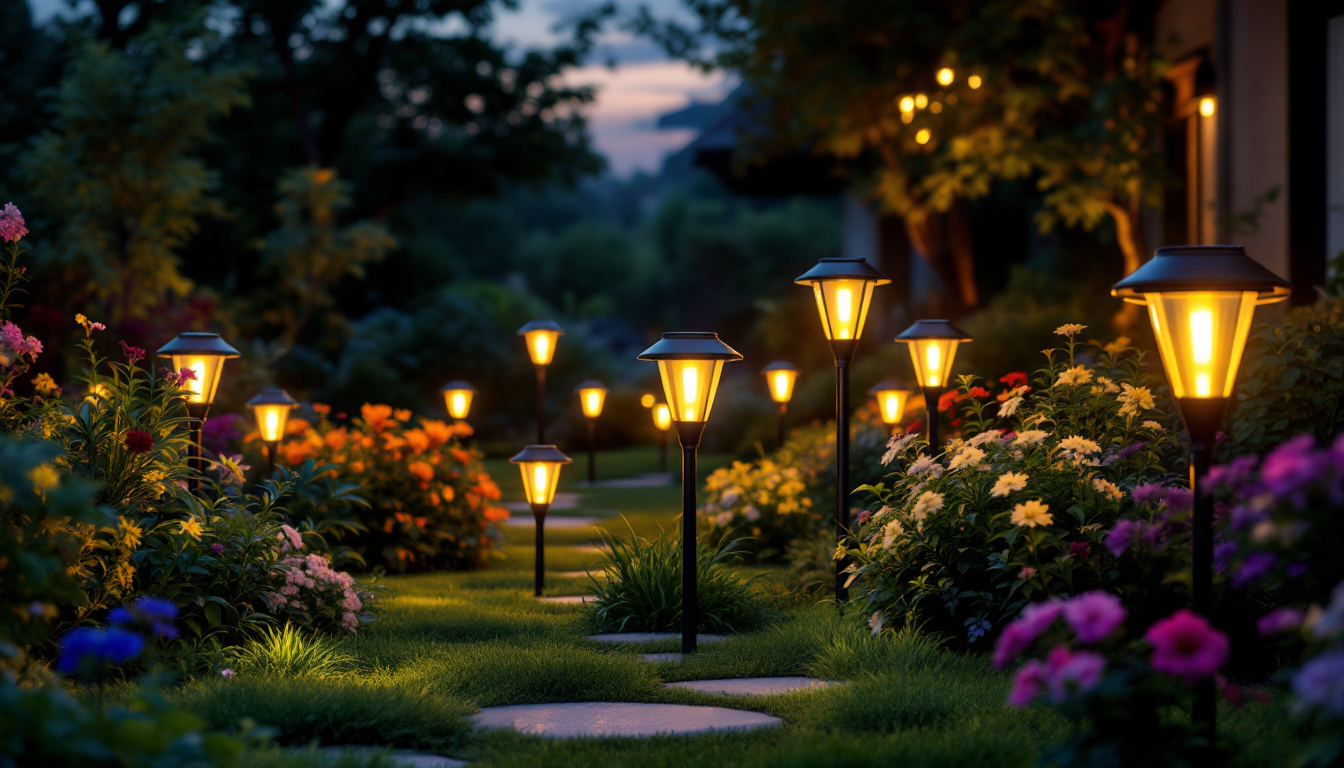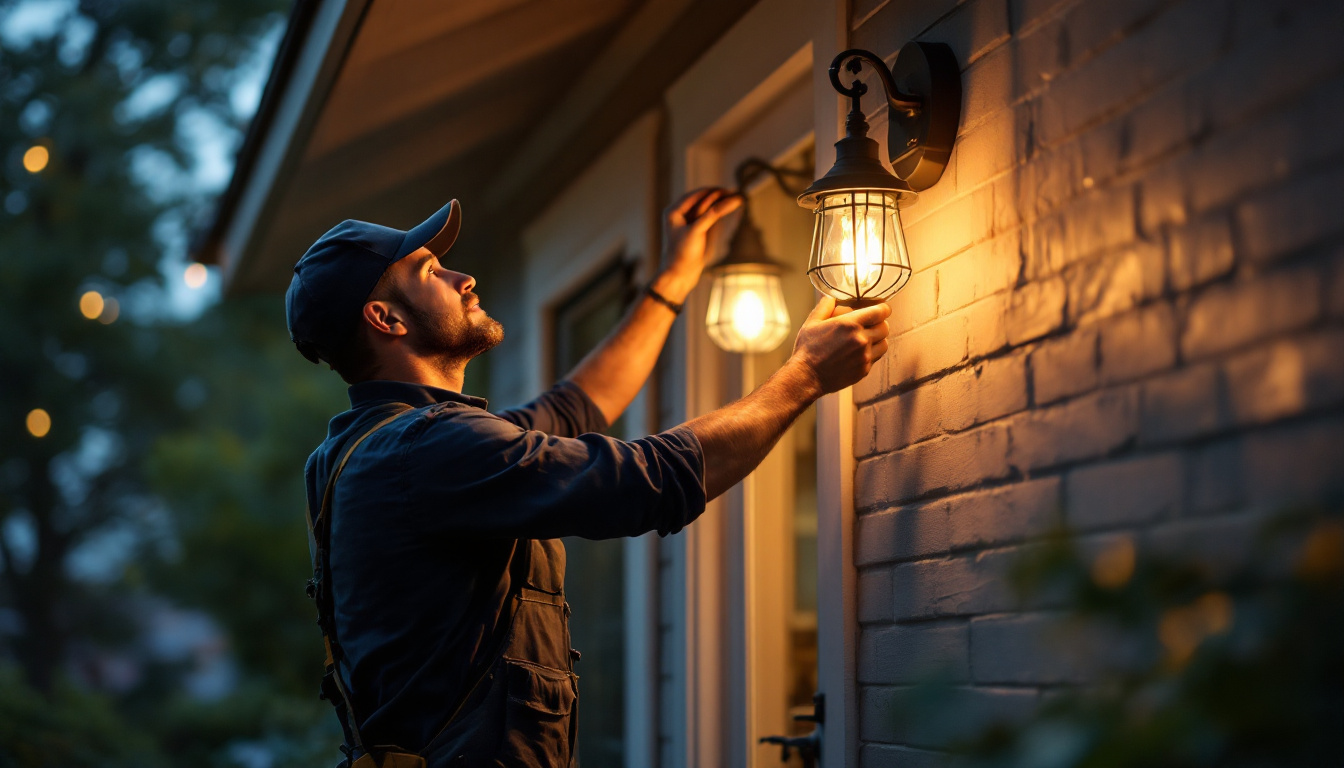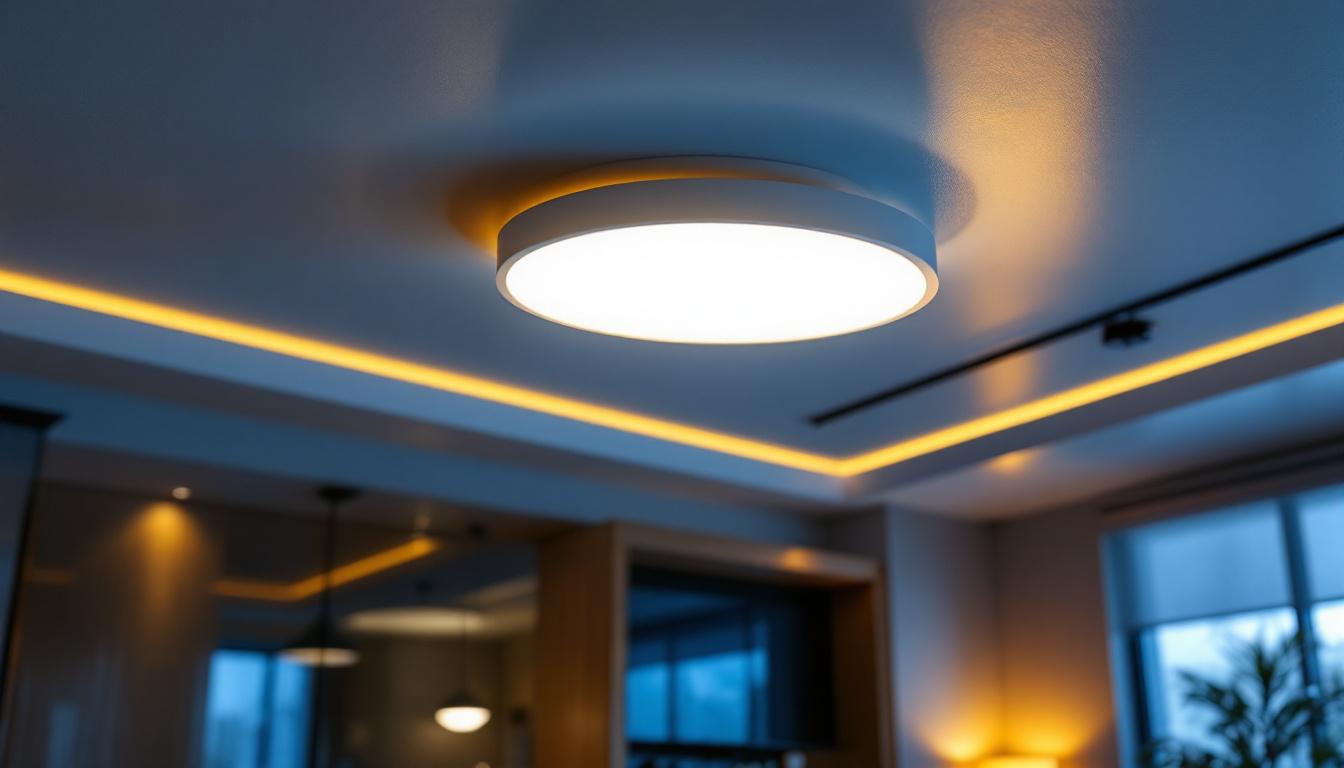
Outdoor solar garden lights have become increasingly popular among homeowners and businesses alike, offering an eco-friendly and cost-effective solution for illuminating outdoor spaces. These lights harness solar energy, making them an attractive option for lighting contractors looking to expand their service offerings. However, with the growing popularity of solar lighting comes the need for compliance with various regulations and standards. Understanding these requirements is crucial for ensuring successful installations and satisfied clients.
This article aims to provide lighting contractors with essential insights into outdoor solar garden lights, focusing on compliance issues, installation best practices, and the benefits of incorporating these systems into their services.
One of the key advantages of outdoor solar garden lights is their ability to significantly reduce energy costs. By utilizing solar panels to convert sunlight into electricity, these lights operate independently of the grid, allowing homeowners and businesses to enjoy beautifully lit outdoor spaces without incurring high electricity bills. Additionally, advancements in solar technology have led to the development of more efficient solar panels and longer-lasting batteries, enhancing the performance and reliability of these lighting systems. As a result, many contractors are finding that offering solar lighting options not only meets the growing demand for sustainable solutions but also positions them as forward-thinking professionals in a competitive market.
Moreover, the aesthetic appeal of solar garden lights cannot be overlooked. Available in a variety of styles, colors, and designs, these lights can complement any outdoor décor, from modern landscapes to traditional gardens. Many models feature decorative elements such as lantern designs, stake lights, and even fairy lights, allowing homeowners to express their personal style while enhancing the beauty of their outdoor spaces. As lighting contractors, understanding the diverse range of products available and being able to recommend the right fixtures for specific environments can greatly enhance customer satisfaction and lead to repeat business.
Compliance regulations for outdoor solar garden lights can vary significantly depending on the location, type of installation, and intended use. It is essential for lighting contractors to familiarize themselves with these regulations to avoid potential legal issues and ensure the safety and satisfaction of their clients.
Lighting contractors must adhere to both local and national standards when installing outdoor solar garden lights. In many regions, the National Electrical Code (NEC) provides guidelines for electrical installations, including those involving solar-powered systems. Contractors should ensure that all products used meet the relevant standards, such as UL certification, which indicates that the product has been tested for safety and performance.
Additionally, local building codes may impose specific requirements regarding the placement, height, and brightness of outdoor lighting. It is advisable for contractors to consult local regulations before commencing any installation project to ensure compliance and avoid fines or rework.
Another critical aspect of compliance involves environmental regulations. Many jurisdictions have established guidelines to minimize the environmental impact of outdoor lighting. For instance, some areas may require that solar garden lights utilize LED technology to reduce energy consumption and light pollution. Understanding these environmental mandates can help contractors recommend appropriate products and designs that align with sustainable practices.
Moreover, contractors should be aware of any restrictions on the use of certain materials or chemicals in outdoor lighting products. Ensuring that all components are eco-friendly not only complies with regulations but also appeals to environmentally conscious clients.
When it comes to outdoor solar garden lights, the choice of products is paramount. Lighting contractors should consider various factors, including quality, performance, and compliance with industry standards. Selecting the right products can significantly impact the success of an installation and the satisfaction of the end user.
Quality is a crucial factor when selecting outdoor solar garden lights. Contractors should look for products that offer durable construction, weather resistance, and reliable performance. High-quality solar lights typically feature robust materials, such as aluminum or stainless steel, which can withstand harsh outdoor conditions.
Performance is another essential consideration. Contractors should evaluate the brightness (measured in lumens), battery capacity, and solar panel efficiency of the products they intend to use. A well-performing solar light will provide adequate illumination throughout the night, enhancing both safety and aesthetics in outdoor spaces.
In addition to quality and performance, compliance with industry standards is vital when selecting outdoor solar garden lights. Contractors should prioritize products that have been tested and certified by recognized organizations, such as Underwriters Laboratories (UL) or the International Electrotechnical Commission (IEC). These certifications ensure that the products meet safety and performance criteria, providing peace of mind for both contractors and clients.
Furthermore, it is beneficial for contractors to stay informed about emerging technologies and trends in solar lighting. Innovations in solar technology can lead to improved efficiency, longer battery life, and enhanced design options, allowing contractors to offer cutting-edge solutions to their clients.
Proper installation is critical for the performance and longevity of outdoor solar garden lights. Lighting contractors must follow best practices to ensure that the systems function effectively and comply with relevant regulations.
Before installation, conducting a thorough site assessment is essential. Contractors should evaluate the location for sunlight exposure, potential obstructions, and the intended use of the lighting. Areas with ample sunlight will allow solar panels to charge effectively, while shaded locations may require alternative solutions or additional lighting sources.
During the site assessment, contractors should also consider the aesthetic aspects of the installation. The positioning of solar lights can significantly impact the overall appearance of the landscape, and careful planning can enhance the visual appeal of outdoor spaces.
Once the site assessment is complete, contractors should focus on the proper placement and spacing of solar garden lights. A general guideline is to position lights approximately 10 to 15 feet apart, depending on the brightness and intended use of the lights. Ensuring adequate spacing will provide uniform illumination, enhancing safety and visibility in outdoor areas.
Additionally, it is crucial to install lights at the correct height. Solar garden lights should be positioned to maximize their exposure to sunlight while providing adequate illumination for pathways, gardens, or other designated areas. Adjusting the height and angle of the lights can help achieve optimal performance.
Regular maintenance is essential for ensuring the longevity and effectiveness of outdoor solar garden lights. Lighting contractors should educate their clients on proper maintenance practices and offer troubleshooting tips to address common issues that may arise.
To keep solar garden lights functioning optimally, routine maintenance is necessary. Clients should be encouraged to clean the solar panels regularly to remove dirt, debris, and leaves that can obstruct sunlight. A simple wipe with a damp cloth can significantly improve the efficiency of the solar panels.
Additionally, checking the batteries periodically is essential. Over time, batteries may lose their capacity to hold a charge, leading to diminished performance. Replacing batteries as needed can help maintain consistent lighting levels.
Lighting contractors should also be prepared to troubleshoot common issues that clients may encounter with solar garden lights. For example, if a light is not functioning, contractors should first check whether the solar panel is receiving adequate sunlight. If the light is still not working, it may be necessary to inspect the battery or wiring for any faults.
Providing clients with a troubleshooting guide can empower them to address minor issues independently, enhancing their overall satisfaction with the solar lighting system.
Incorporating outdoor solar garden lights into a contractor’s service offerings presents numerous benefits. From cost savings to environmental advantages, these lighting solutions can enhance the value of a contractor’s portfolio.
One of the most significant advantages of solar garden lights is their cost-effectiveness. Since they operate on solar energy, there are no electricity costs associated with their use. This can lead to substantial savings for homeowners and businesses, making solar lighting an attractive option for budget-conscious clients.
Moreover, solar garden lights typically require minimal maintenance, further reducing long-term costs. With no wiring or electrical work involved, installation is often quicker and less expensive than traditional lighting systems.
Outdoor solar garden lights contribute to reducing carbon footprints, making them an environmentally friendly choice. By utilizing renewable energy, these lights help decrease reliance on fossil fuels and lower greenhouse gas emissions. For clients who prioritize sustainability, solar lights are an appealing option that aligns with their values.
Additionally, many solar lights are designed with energy-efficient LED technology, which consumes significantly less energy than traditional incandescent bulbs. This further enhances their environmental benefits, making them a responsible choice for outdoor lighting.
Outdoor solar garden lights present a valuable opportunity for lighting contractors to expand their service offerings while adhering to compliance regulations and industry standards. By understanding the various aspects of solar lighting, including compliance, product selection, installation best practices, and maintenance, contractors can ensure successful installations that meet client expectations.
As the demand for eco-friendly and cost-effective lighting solutions continues to grow, embracing outdoor solar garden lights can position contractors as leaders in the industry. By staying informed and adapting to emerging trends, lighting contractors can enhance their reputation and ultimately contribute to a more sustainable future.
Ready to elevate your lighting installations with the most cost-effective and environmentally friendly solutions? Look no further than LumenWholesale for all your outdoor solar garden light needs. Our extensive selection of spec-grade lighting products is designed to meet the highest industry standards, ensuring you deliver reliable, high-performance lighting to every client. With unbeatable wholesale prices and the convenience of free shipping on bulk orders, LumenWholesale is your go-to source for premium lighting without the premium price tag. Discover the best value in wholesale lighting and join the ranks of satisfied contractors who choose LumenWholesale for quality, affordability, and convenience.

Discover why commercial hand dryers are becoming essential for lighting contractors.

Discover essential tips and expert advice on front porch light hanging tailored for lighting contractors.

Discover how flat ceiling lights are transforming the lighting industry and impacting contractors’ profitability.

Discover why LED light bulbs are a game-changer for living room lighting and why every contractor should recommend them.